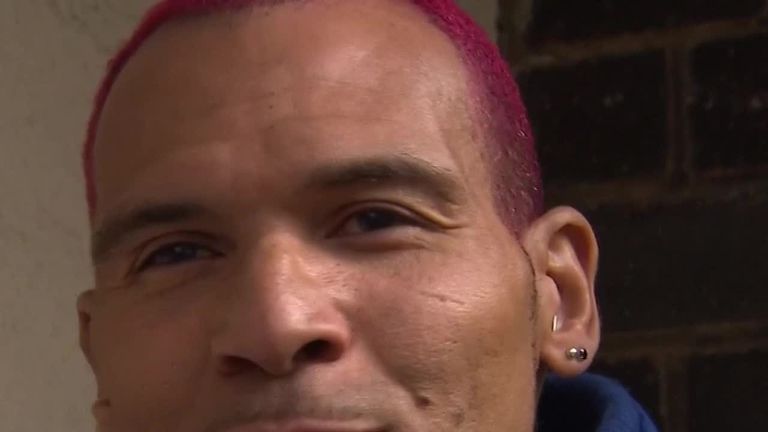More police won't stop London's spate of killings - youth worker
Youth worker and rapper Franklyn Addo says giving teens a "genuine stake in their societies" will ease tensions in the capital.
Thursday 5 April 2018 19:01, UK
London has seen the murder rate on its streets soar - 51 people are suspected to have been deliberately killed in the capital since the start of the year.
The latest killings in the last week have sparked debate about what to do to tackle violence, especially among young people.
Franklyn Addo, a youth worker, journalist and rapper from Hackney, explains that the violence is nothing new and neither are the problems he believes cause it:
I'm distressed that it's taken the deaths of so many people in London for the issue of violence to become so widely discussed in the public domain.
I'm encouraged though, that the concerns of people from communities such as my own which have been affected by violence for many years now are finally being considered more widely, and hopeful that the conversation might lead to effective solutions.
While the death toll has indeed risen rapidly this year, and I myself feel a particular helplessness, my experience is that such violence is not new - it's just again considered newsworthy.
Being from Hackney, which was before recent regeneration infamous for poverty and crime, I've been personally affected by violence since I can remember.
When I was just 11 for example, I was shaken by the death of Robert Levy who was stabbed outside of Hackney Town Hall as he tried to stop a fight.
I've felt since then a scary sense of the fragility of life and the spontaneity and aggressiveness with which it can be taken.
:: London's year of horror so far
A familiar sorrow descended when Jamal Mason Blair was accidentally killed in a similar circumstance in 2009, and I lamented the abnormality of a society in which a 13-year-old might come to commit such a crime.
There are many more cases I could mention here.
My experience is that simply increasing stop and search and placing more police on the streets won't resolve this longstanding issue.
The problem persists despite such measures being previously taken. We need to radically reshape our understanding of violence as being just a criminal issue, to promote and, crucially, to fund a more holistic approach involving healthcare, education and community groups - all of these have a stake in and feel the effects of violence.
Apart from the fact that stop and search has relatively little yield, the amount of talk about apprehending street-level perpetrators is peculiar to me when yet much less is done about detecting the root source of weapons like guns and preventing their dissemination.
What's more is that stop and search nor indeed any other police operation cannot deal with the factors compelling young people to carry weapons in the first instance.
Knives are universally available, and even in their absence, many other mundane items can easily be weaponised.
:: In context: Just how bad is London's murder rate?
The conversation about the potential causes of this all could be endless; I believe there are many which are inextricably linked.
I once read a quote from Danny Dorling in relation to poverty, which I often use to summarise the issue: "No one rationally chooses to live on the miserliness of sickness benefits because they see it as a good living".
Similarly, the young people I've met don't consider being involved in violence as great fun: it's not always as lucrative as people imagine; the risk of apprehension by authorities and even of death if attacked is psychologically taxing.
It only makes sense to me then, that if we would provide young people with a viable alternatives, i.e. guidance and support through mentorship as opposed to underfunding youth services; respectable job opportunities with real earning potential rather than erecting boundaries into employment; giving young people a genuine stake in their societies, and a life without the fear of being attacked, then we would see much less of the tragedy we've been seeing for too long now.






